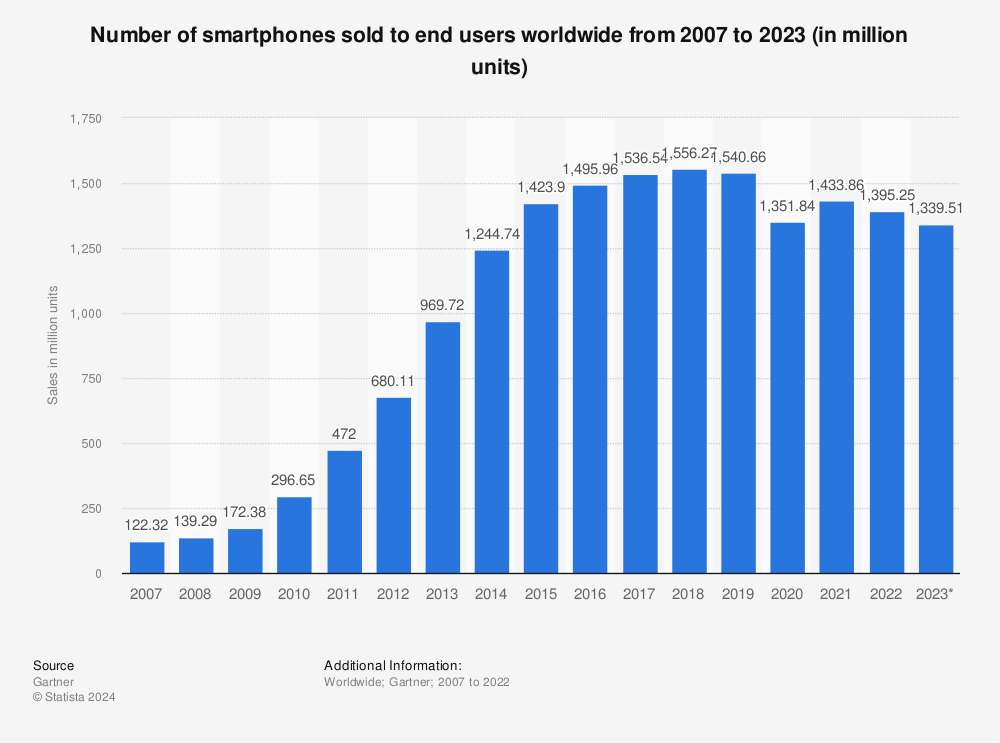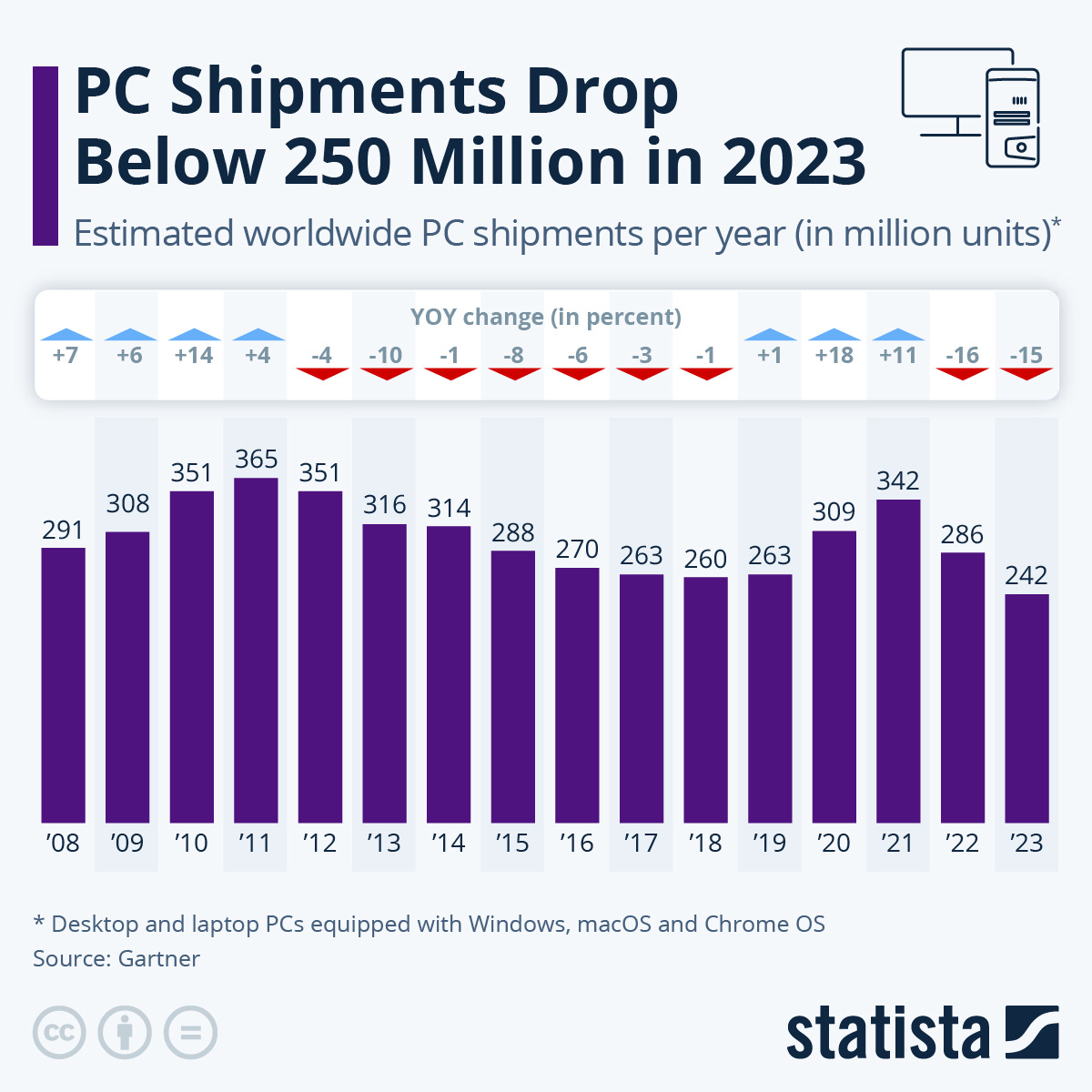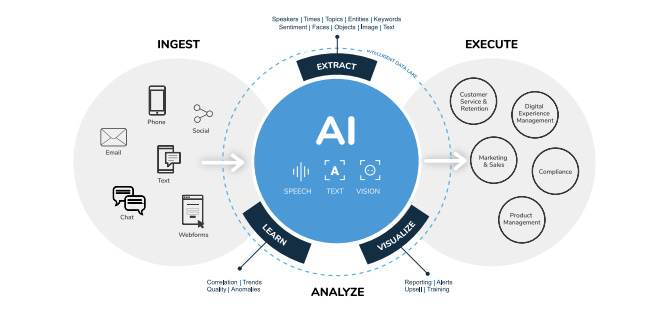What New AI Operating Systems Mean for Work
Will AI Operators take over the firm, or turn some of us into Super Operators?
Would an AI Operating System really do most of our mundane work and be better than us at innovation and collaboration?
Last week, as OpenAI announced ‘Operator’, its first attempt at an agent, I’m sure I wasn’t the only one thinking that we’re getting closer to AI taking over even more tasks. There’s already some great examples out there, and even though right now it’s only available for those paying the 200$/month ChatGPT plan, it will no doubt become more accessible soon. The era of your own ‘digital workforce’ will empower many projects. At an individual level, you could be running several jobs at the same time (some have tested it to play Poker, or compile surveys to earn some extra cash). At the company level, the holy grail of efficiency will be up for grabs.
But today I wanted to focus on the longer-term picture. I think AI is going to become an Operating System (i.e. Windows). It’s going to happen first on a technical level (i.e. running your computer) and then, at a more strategic/business level (i.e. running your business).
Here’s how I think it will work.
Stage 1: Taking Over our Computers (less than a year)
This stage will redefine how we interact with our computers.
Beyond Apps (and APIs): AI could fundamentally change the way we interact with our computers, moving beyond the traditional app-centric model to a more conversational and task-oriented approach. Think less "opening a spreadsheet program" and more "analyze this data and create a summary."
Personalized Workflows: AI could personalize our workflows, anticipating our needs, automating repetitive tasks, and suggesting optimal tools and resources based on context.
Contextual Awareness: AI could understand the context of our work, seamlessly integrating information from different sources and applications to provide a more holistic and intelligent computing experience.
Current functionalities are slow, and imperfect - but if we assume a similar pace of improvement to the one we experience in the last year, I don’t see why this kind of feature couldn’t be perfected in this time frame.
Of course the first step is for this to be an app, an external provider. But how long do you think it will be before it’s integrated (like Microsoft’s CoPilot) inside the hardware / computers out of the box?
To begin with, this will be the kind of features that try to revive consumerism and interest in the mobile phone industry (we can already see this happening), the shiny object. Just have a look at how smartphone and PC sales are slowing down:
In terms of PCs, we could hypothesize two scenarios:
1 - Microsoft cracks the secret sauce it and keeps its power
2 - Someone else (OpenAI? a complete outsider?) potentially with an Open Source version launches their own product
Mobile is more tricky: on one side, there’s the rise and fall of wearable AI (Humane Pin, Rabbit R1) that may have limited market potential for the B2C market (although it is currently sitting at 4bn$ projected to be at 40bn in 2030). On the other side, we there’s smart eyewear, where Meta’s dream is to substitute mobile phones alltogether at a certain stage.
That said, the real game for AI is for businesses, not end customers. Apple Intelligence has been a flop, and yes it’s very cool to have a personal assistant that books my restaurants and flights, but the gain both in terms of time and monetary value is limited.
That’s where Operators (or Agents) are supposed come in, doing most of the sourcing for recruitment, prospecting for sales, scheduling, and even running sales and customer care calls. This isn't just about automating simple tasks; it's about AI agents becoming deeply integrated into business workflows, acting as a sort of digital workforce, which we discussed in this article a few months back.
At a hardware level, we’re also going to see operating systems that learn what tasks a user prioritizes and automatically adjusts computer resources like processing power and memory.
A likely scenario involves AI controlling software through simulated inputs and visual recognition, enabling faster, more efficient multitasking. AI with feedback capabilities could even monitor system health, performing updates and repairs.
The operating system itself could be transformed. Instead of desktops and windows, AI could generate interfaces on demand, adapting to specific needs. Content would be dynamically generated or retrieved. Interaction could also evolve, moving beyond traditional input methods to include conversational language, sign language, and even subtle body movements. Imagine simply glancing at something and gesturing vaguely, with the AI understanding your intent. This intuitive interaction promises a future where computers truly anticipate our needs.
But this potential shift has a big downside. The very speed that makes AI so attractive also means that mistakes can escalate quickly. While offering the potential for efficiency gains, it also introduces the possibility of rapidly accumulating errors. More importantly, if we’re looking specifically at business operations, APIs and integrations allow automations at a deeper level which are more efficient and less costly.
Stage 2: Taking Over our Businesses (in five to ten years)
This stage is being promised as the holy grail of efficiency and returns. PwC estimates that AI could contribute up to $15.7 trillion to the global economy in 20301, more than the current output of China and India combined. Of this, $6.6 trillion is supposed to come from increased productivity and $9.1 trillion is likely to come from benefits to consumers.
An AI Operating System could really be the dream come true of the ‘business in a box’ approach that morphs according to the specific context and use case. It could be the way that consulting, or IT companies providing services pivot their business models and thrive in a future where access to technology, software engineering and most of the technical skills we use today are a commodity.
A simple analogy is the one with the internet. Even though it’s been around almost thirty years, it took almost two decades before ‘Internet Native’ companies started to come around. Same thing with mobile.
An AI Operating System for businesses will touch both the technical side of things (integrated into hardware, as we discussed above) but also into the execution.
Some things it could do:
Automated Workflow Management: Dynamically allocate resources, optimize task sequencing, and predict potential bottlenecks across all departments. Think of it as a real-time air traffic controller for the entire business.
Personalized Customer Experiences: Analyze customer data to anticipate needs, tailor product recommendations, and provide proactive support, creating individualized journeys that maximize engagement and loyalty.
Predictive Analytics & Forecasting: Go beyond historical data to predict future market trends, customer behavior, and operational needs, enabling proactive decision-making and minimizing risk.
Intelligent Supply Chain Optimization: Manage inventory levels in real-time, predict supply disruptions, and dynamically adjust logistics to minimize costs and maximize efficiency.
To be AI Native, all of these components will need to be AI Native.
AI Native companies will accelerate path to $1 billion by 50%
As business models change, people will acquire new skills with the power of AI solutions, and technologies will accelerate faster than ever before due to the compounding powers of these foundational models. Revenue generation will also accelerate by 50% according to Bessemer Ventures.
Canva achieved it in three years, Zoom in 3.5 years, and Twilio in four years. Emergent leaders such as OpenAI and Anthropic are well on their way to reaching not only Centaur status ($100M ARR), but becoming some of the fastest growing technology businesses in recent history. It’s estimated that AI-native companies will reach $1 billion ARR 50% faster than their cloud counterparts.
This type of AI Operating System will require a different type of organization: the Exponential Organization.
Organizations will transition from traditional top-down structures to decentralized ExO-style models, leading to significant changes in autonomy. Key transformations include increased Human-AI collaborations, the adoption of DAOs by nonprofits and the public sector, and participatory budgeting for decentralized decision-making. These organizations will rely heavily on technologies like blockchain and AI. The rise of DAOs will also see a shift from temporary staff to member-based roles. Moreover, employees will enjoy more customizable career paths and continuous learning opportunities. Emphasis will be on nurturing a positive organizational culture that values autonomy and innovation. Ethical considerations, including equitable decision-making and data privacy, will become paramount.
What are the implications for the Future of Work?
One thing is for sure: we are in for a complex landscape with several key implications:
The Rise of SuperOperators
Rather than completely replacing human workers, we're likely to see the emergence of "SuperOperators" - highly skilled professionals who leverage advanced AI capabilities. These individuals will act as orchestrators, working symbiotically with AI systems to achieve unprecedented levels of productivity. They'll need to master the art of prompt engineering, system integration, and strategic oversight, becoming the bridge between AI capabilities and business objectives.The Transformation of Traditional Employment
As Ronald Coase's theory suggests, with transaction costs approaching zero through AI-driven efficiency, we're likely to see a fundamental restructuring of traditional organizations. This could lead to:
Smaller, more agile core teams
Increased reliance on project-based work
The rise of AI-human hybrid teams
A shift from traditional employment to more flexible, outcome-based arrangements
The Evolution of Human Value
Rather than leading to universal leisure, AI Operating Systems will likely create a new paradigm where human value lies in:
Creative problem-solving
Strategic decision-making
Emotional intelligence and relationship building
AI system oversight and ethical governance
Innovation in human-AI collaboration models
Economic and Social Implications
To address the potential wealth concentration that AI automation might create, several adaptations will be necessary:
Implementation of lifelong learning programs to help workers adapt
Development of new economic models that better distribute AI-generated wealth
Creation of improved work-matching infrastructure to connect people with opportunities
Establishment of universal basic services or income systems to support transition periods
The New Entrepreneurial Landscape
The democratization of AI capabilities through Operating Systems could lead to:
Lower barriers to entry for new businesses
Increased opportunities for micro-entrepreneurship
New forms of value creation through AI-human collaboration
The emergence of new industries focused on AI augmentation and oversight
Policy and Societal Adaptations
To ensure an inclusive future, several key areas need attention:
Education reform to emphasize AI literacy and human-centric skills
Regulatory frameworks for AI deployment and usage
Social safety nets for displaced workers
Investment in infrastructure for the new digital economy
It won't be a simple matter of AI replacement or human obsolescence.
Instead, it will likely be a new ecosystem where the most successful individuals and organizations will be those who can effectively combine human creativity, judgment, and emotional intelligence with AI's computational power and efficiency.
The goal should be to use AI Operating Systems not just for efficiency, but as tools for human empowerment and societal advancement (which we covered in What comes next for Wealth, Work, and Leisure?)
As always, let us know what you think in the comments!
Ciao,
Matteo







